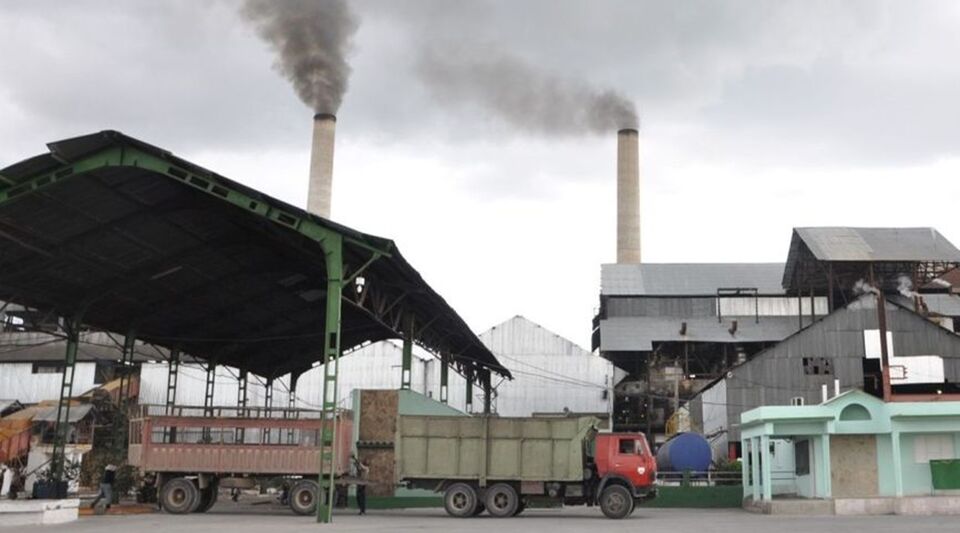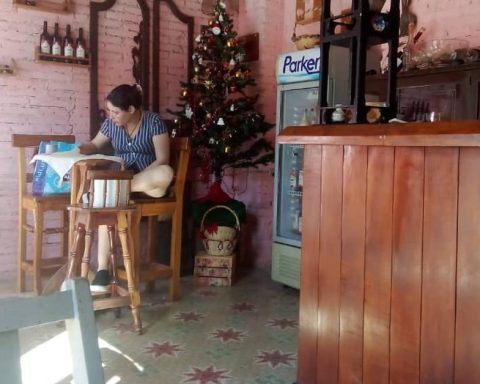The colossus of Jatibonico no longer roars as it once did. Instead of the rattling of its machinery, the Uruguayan sugar mill remains silent and prepares for the arrival of its new managers, a Russian company that is trying to revitalize what was once one of the largest Cuban sugar mills. Meanwhile, the residents question whether the town will be able to have a new economic opportunity with the change of administration of the industry.
“This is more dead than the cemetery,” he tells 14ymedio Luis Manuel, one of the many employees who lost his job in the middle of last year due to the closure of the plant because “technological obsolescence and the lack of investment became, together with the shortage of cane, dangerous threats to the continuity of the industry “, according to what the local press.
“In that time the only thing that has happened here is that the young people have gone to seas, the family that does not have a rafter child is because it has two,” he says. “Now it has been known that the Russians are preparing everything to repair the plant and to start producing. They say that even though they bring their own workers there will always be some jobs for us.”
In October 2022, four months after this newspaper will tell in scoop the closure of the Uruguay mill, the news was confirmed by the official provincial newspaper Escambray. The article hinted that the hope for hundreds of workers who lost their jobs was in Moscow because a Russian delegation visited Jatibonico and expressed its intention to create a mixed company that would save the dying central.
Of the 424 workers that the plant had at that time, 192 began to undertake repair work to improve it
Of the 424 workers that the plant had at that time, 192 began to undertake repair work to improve it and 102 joined “eight other labor groups with payment systems adjusted to activities that generate income for them and the company.” These areas ranged from the carpentry to the paint, sheet metal or ice factory, all of them dependent on the power station.
Then, Eddy Gil Pérez, director of the Empresa Agroindustrial Azucarera Uruguay, showed his enthusiasm with the possible Russian management: “We are among the nine mills in the country chosen for these businesses,” he revealed. More than half a year later, this February, workers in the sector have been informed that the agreement has been finalized with Moscow and Uruguay should not be counted on for the current harvest because it is undergoing remodeling work.
“Everything ended quickly,” admits Luis Manuel. “Those of us who were relocated, for example, in agriculture, ended up returning to our homes because there are not so many other crops in this area and the State does not pay what was promised.” After several months, the family of the former Uruguayan employee survives thanks to an emigrant daughter and the sale of guava candy on the side of the road.
“They arrived, they signed the contract and they are already working. They are staying here and we are no longer accepting national clients”
“The Russians are already here,” says an employee of the Zaza hotel, a nearby accommodation with an architectural style from Soviet times and very similar to the so-called schools in the countryside. The place, which had been deteriorating for years, is now undergoing a “capital repair,” says the woman. “The investment is large because this is done on fire, but it is seen that the Russians come with resources and their own people for the repairs.”
“They arrived, they signed the contract and they are already working. They are staying here and we are no longer accepting national clients,” remarks the worker at the accommodation belonging to the Islazul chain. “This place is not very pretty but since it is remote, it was cheap and it is close to the dam, there were people who came here to spend a few days, but the word has already spread that we are not accepting Cuban guests.”
The idea is for the Zaza hotel to function as temporary accommodation for the Russian technicians who will try to revitalize the Uruguay mill, which has been in operation since 1905 and has undergone endless transformations and repairs since its foundation. In recent years, stoppages due to breakdowns have multiplied and the plant has spent more months stopped for repair and maintenance work than grinding cane.
“This was the pride of our town and now it is better not to mention it,” considers María Elena, who at the beginning of this century was a worker in the administrative part of the mill, one of the largest sources of employment in the province historically. “We were like a family but all that was lost and now nobody tells us if with the Russians we are going to benefit from Uruguay grinding again.”
________________________
Collaborate with our work:
The team of 14ymedio He is committed to doing serious journalism that reflects the reality of deep Cuba. Thank you for accompanying us on this long road. We invite you to continue supporting us, but this time becoming a member of our newspaper. Together we can continue transforming journalism in Cuba.


















